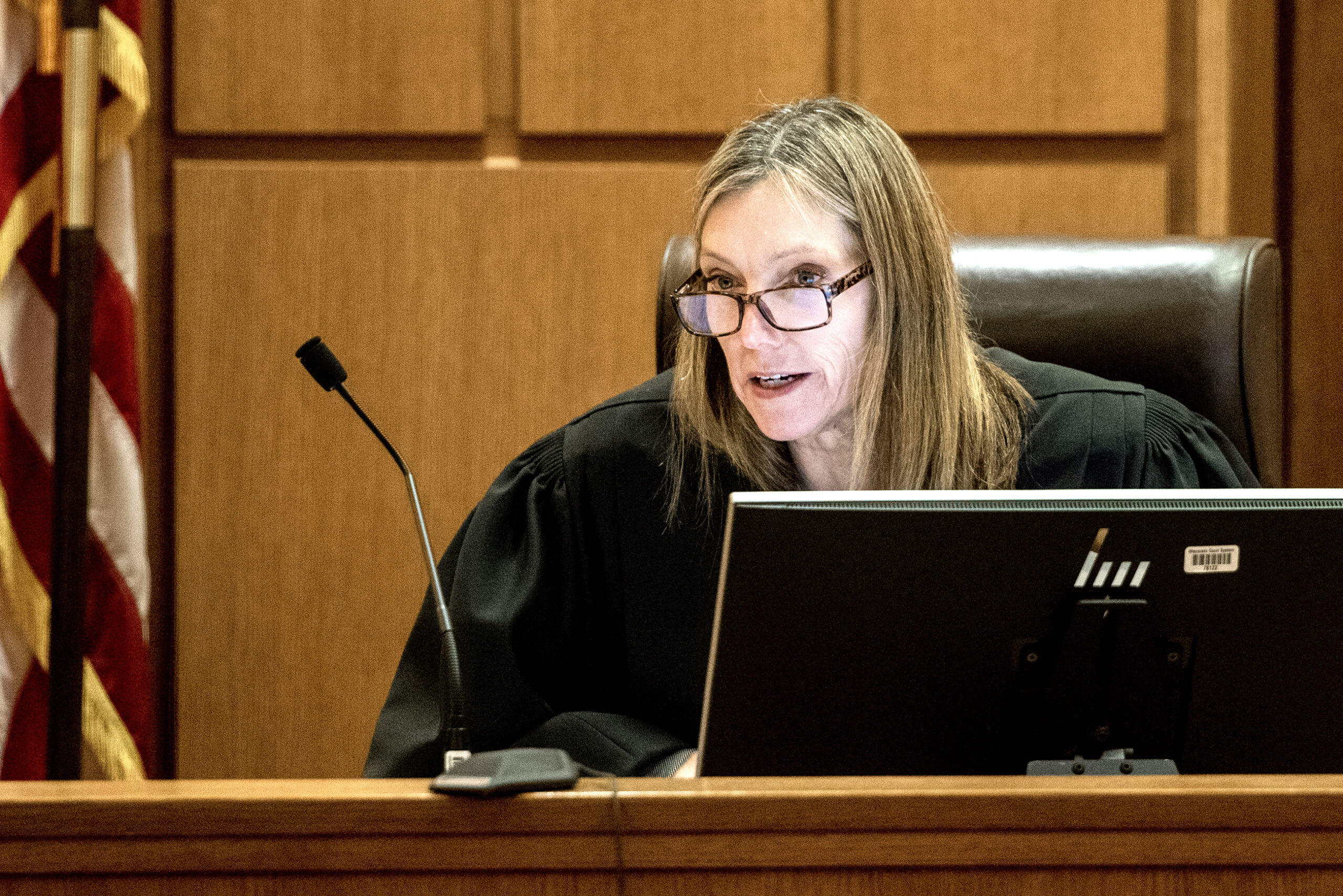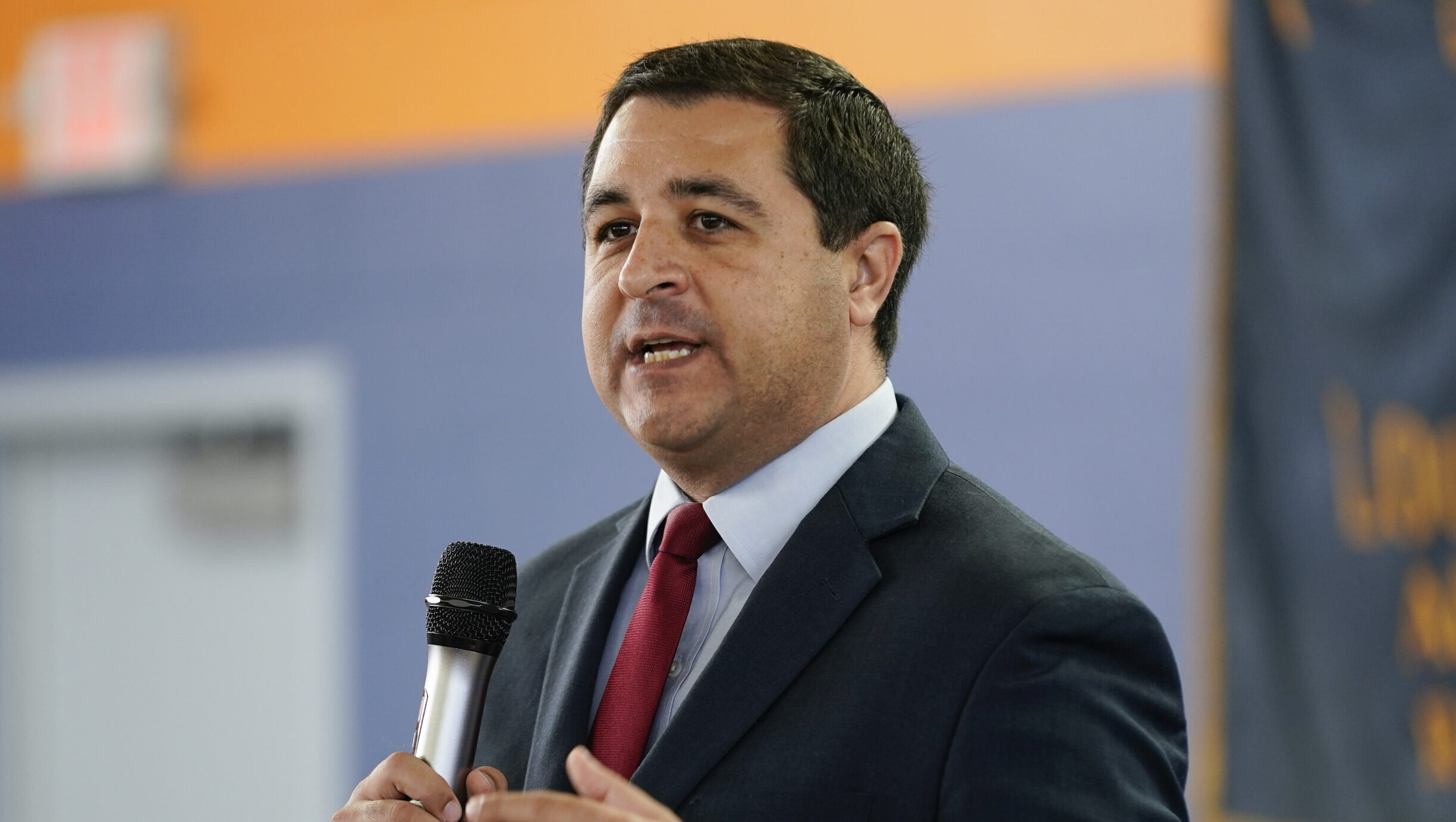A Dane County judge is weighing a motion to dismiss a lawsuit that aims to block Wisconsin’s 19th-century abortion ban.
Circuit Court Judge Diane Schlipper heard arguments Thursday morning in the suit, which was filed by Wisconsin Attorney General Josh Kaul just days after the U.S. Supreme Court overturned Roe v. Wade.
“I will take this all under advisement,” Schlipper told attorneys at the close of Thursdsay’s hearing. “But I understand the importance of the timeliness of this, so with that, we will be adjourned.”
News with a little more humanity
WPR’s “Wisconsin Today” newsletter keeps you connected to the state you love without feeling overwhelmed. No paywall. No agenda. No corporate filter.
Kaul, a Democrat, is joined by Wisconsin’s Department of Safety and Professional Services, the Wisconsin Medical Examining Board and Medical Examining Board Chair Dr. Sheldon Wasserman as fellow plaintiffs.
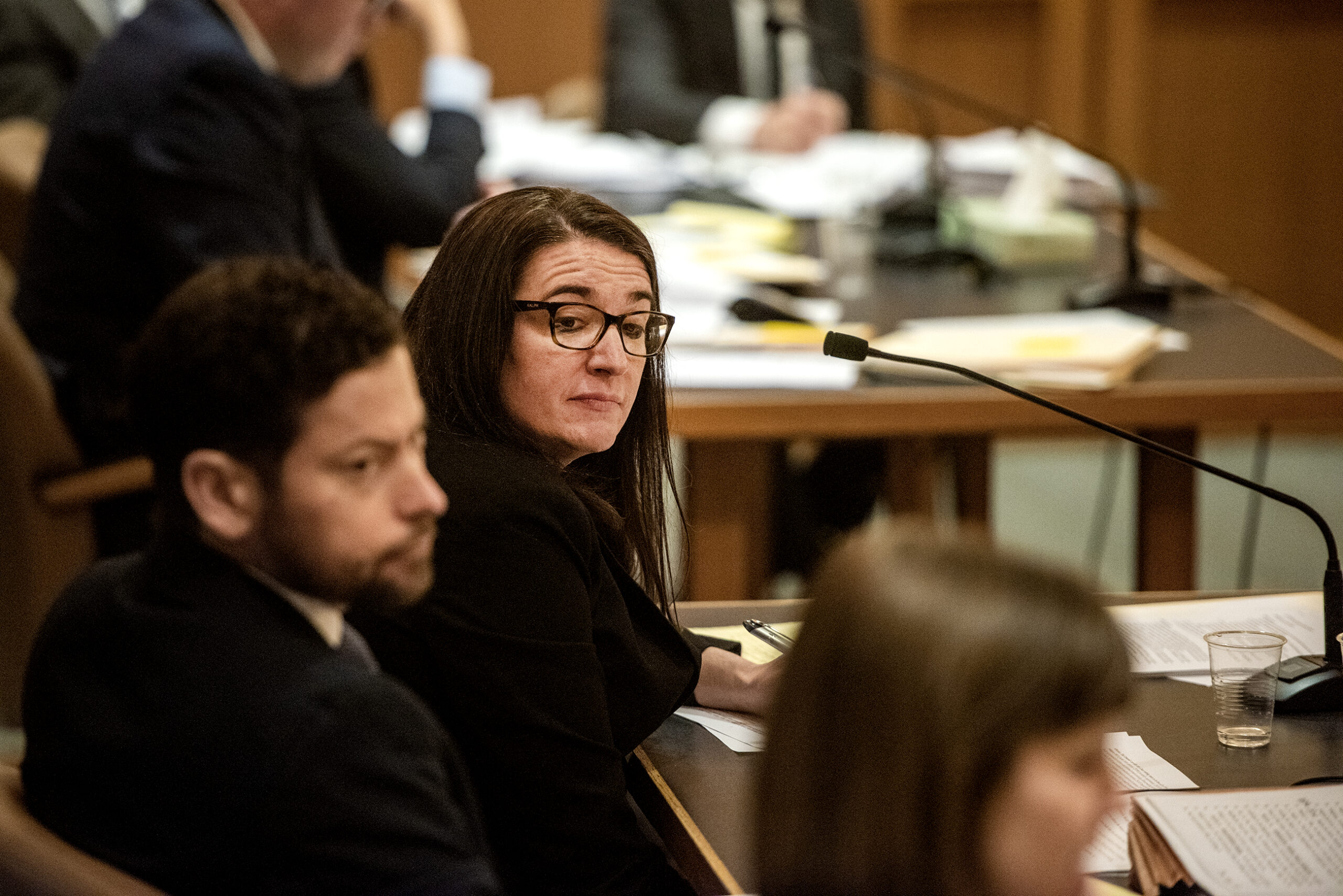
The plaintiffs contend Wisconsin should not enforce its 1849 law, which makes it a felony to perform an abortion unless the procedure is done to save a pregnant person’s life. They argue that law should be voided because it’s been out of use for so long, and because it conflicts with more recent state laws on abortion, including a 1985 law that criminalizes abortion only if it’s done after the point of fetal viability. That 1985 law also allows abortion after viability if it’s needed to “preserve the life or health of the woman, as determined by reasonable medical judgment of the woman’s attending physician.”
“Women in the state of Wisconsin are not currently able to receive critical health care that they have had a constitutional right to receive for nearly half a century, because of the very lack of clarity in the law,” Assistant AG Hannah Jurss told the judge Thursday.
But Republican District Attorney Joel Urmanski — one of the three DAs being sued by the AG’s office —rejected the notion that Wisconsin’s abortion laws are in fundamental conflict with each other. Urmaksi argues Kaul’s interfering with prosecutorial discretion, and he’s asking for the case to be dismissed.
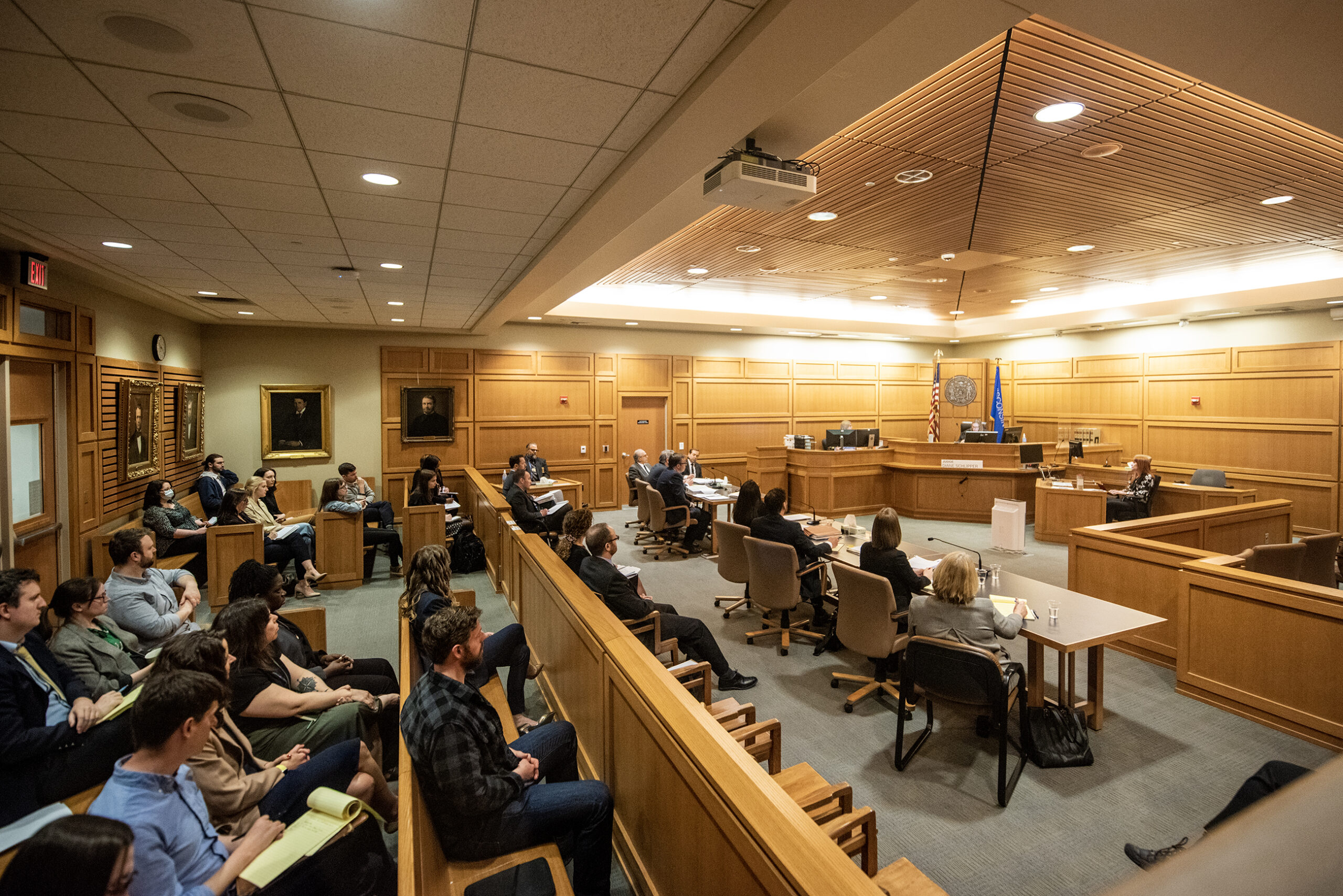
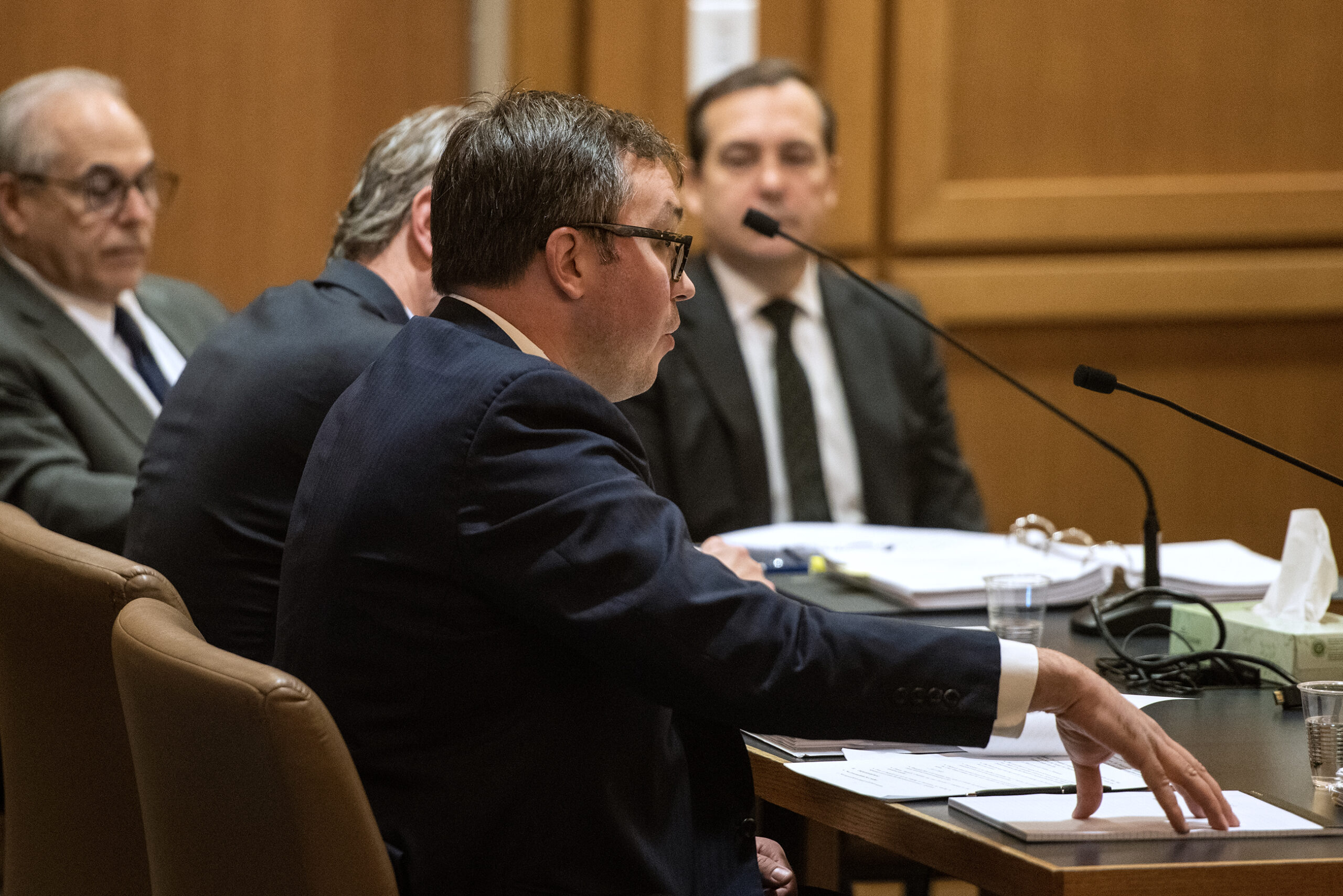
“It is very clear that you can have multiple, partially overlapping, even completely overlapping, criminal statutes,” Matthew Thome, an attorney representing Urmanksi, said Thursday. “You can have a statute that treats the exact same conduct as a felony and a misdemeanor and prosecutors get the discretion as to what they’re going to charge.”
Urmanski also argues that Kaul and the other plaintiffs don’t have a legal basis to sue because they’re not the people who would be prosecuted under the 1849 law.
“This is as clear of a request for an advisory opinion as a court is ever likely to see,” Thome said. “There was no justiciable controversy between the plaintiffs and the district attorneys.”
Two other district attorneys, Ismael Ozanne of Dane County and John Chisholm of Milwaukee County, are likewise named as defendants in the suit, though they’re not part of the motion to dismiss the case.
Urmanski, Ozanne and Chisolm all have jurisdiction in counties where elective abortions were performed before Roe’s overturn, but Ozanne and Chisholm are both Democrats.
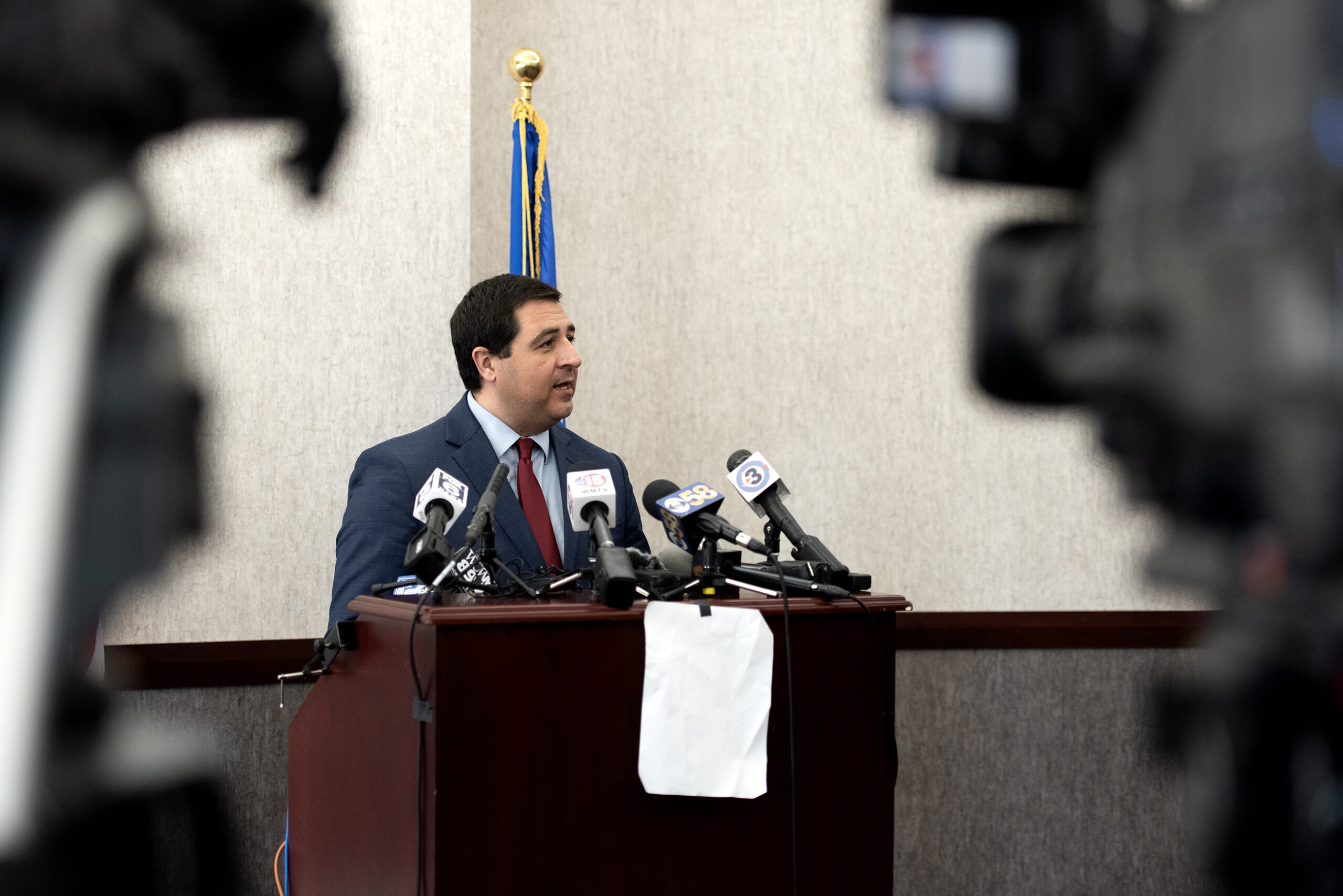
Additionally, a group of three physicians is intervening in the case on the AG’s behalf, arguing confusion over abortion’s legal status is making it difficult for Wisconsin doctors to do their jobs.
“They don’t provide, you know, elective abortions,” attorney Leslie Freehill said of her clients. “They’re providing care for women in high risk scenarios. They’re providing care for women who walk into the emergency room door. And these physicians need to know — not just these three physicians, but every physician across the state in every county — they need to know what they can do because they make these decisions, not within days, or not within hours or within minutes, but within seconds.”
The case is likely to ultimately head to Wisconsin’s Supreme Court, where liberals will gain a narrow majority once Justice-Elect Janet Protasiewicz takes office in August.
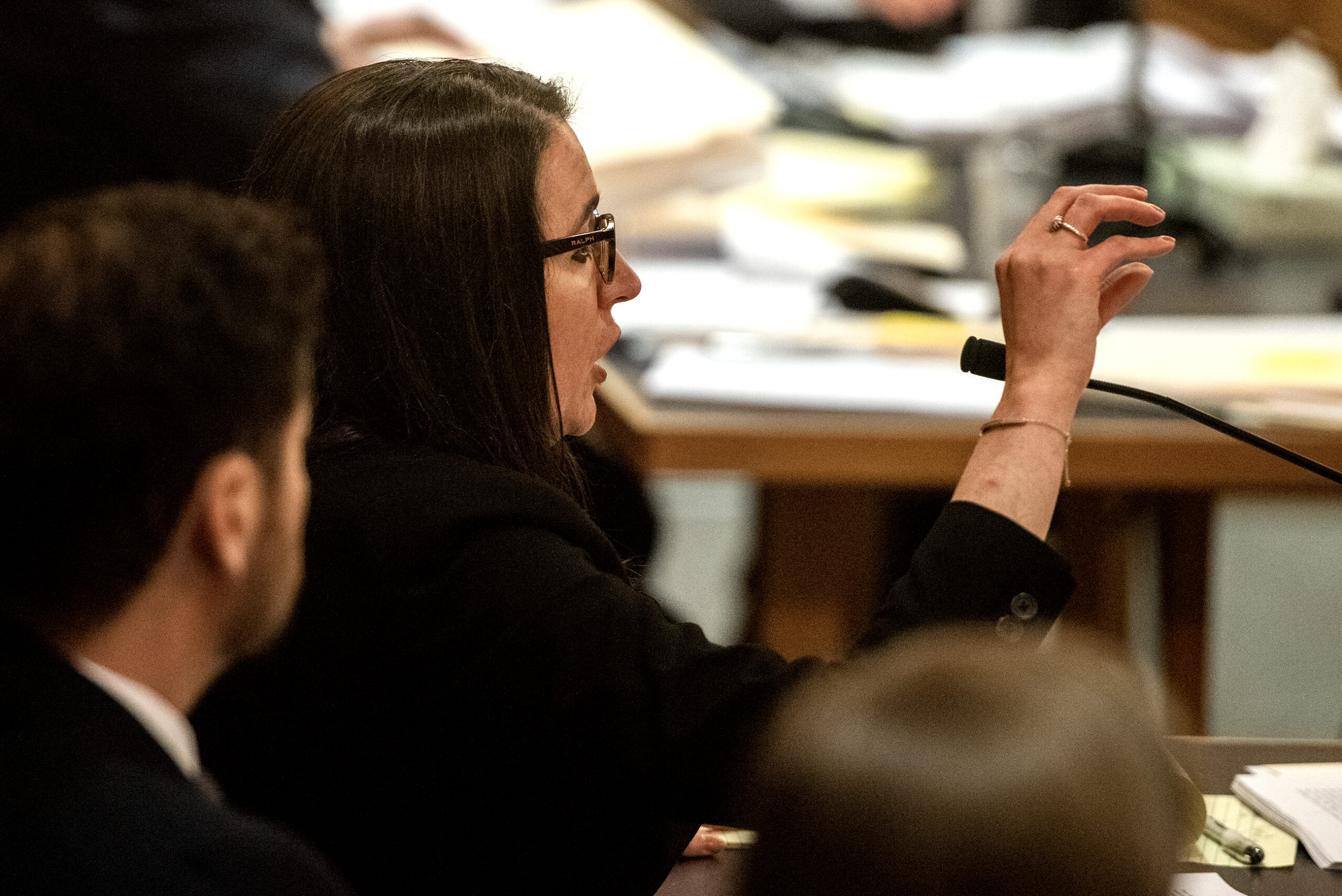
Wisconsin Public Radio, © Copyright 2025, Board of Regents of the University of Wisconsin System and Wisconsin Educational Communications Board.

